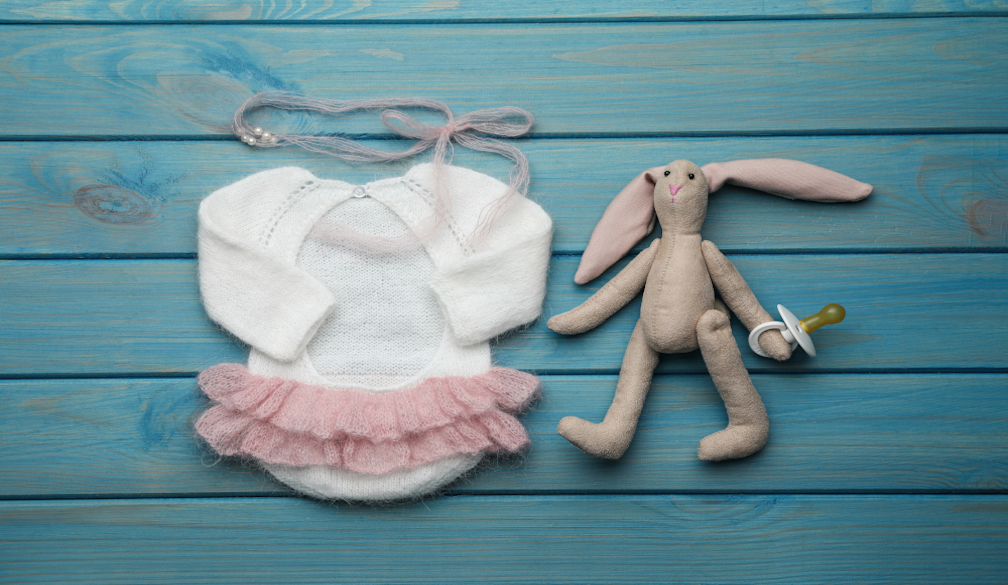The Cosy Warmth of Wool - Pros and Cons for Newborn Knitwear

When it comes to dressing our precious newborns, we want the best of the best. Comfort, warmth, and softness are top priorities. One material that has stood the test of time for quality baby knitwear is wool. Its cosy warmth and soft texture make it a popular choice among parents, but it's essential to understand the pros and cons of using wool for newborns.
In this blog post, we'll explore the unique characteristics of wool in newborn knitwear, including its warmth and softness, as well as potential downsides like maintenance.
Pros of Wool for Newborn Knitwear
Cosy Warmth
Wool is renowned for its excellent insulating properties. It naturally traps pockets of air within its fibres, creating a warm and cosy environment. For newborns, who are more susceptible to temperature changes and need to stay warm, wool is an ideal choice. Whether you're dressing your little one for a chilly winter day or a crisp autumn morning, wool will help maintain their body temperature, keeping them comfortable and snug.
Softness and Comfort
Newborn skin is delicate and sensitive, so the softness of the fabric is of utmost importance. Wool is surprisingly gentle and has a natural elasticity that prevents it from feeling scratchy. High-quality, fine wool types like Merino wool are exceptionally soft and comfortable against a baby's skin. Unlike some synthetic materials, wool allows the skin to breathe and wicks away moisture, preventing your baby from feeling sweaty or uncomfortable.
All-Natural and Sustainable
Wool is a renewable resource as it comes from the fleece of sheep, and it's biodegradable. This makes it an eco-friendly choice for environmentally-conscious parents. Additionally, wool is free from harmful chemicals often found in synthetic fabrics, ensuring that your baby's skin won't be exposed to any unnecessary irritants.
Durability
Wool is known for its exceptional durability, making it an excellent choice for baby knitwear. High-quality wool garments can withstand repeated use, washing, and stretching without losing their shape or softness.
This durability can be particularly beneficial for newborns, who tend to go through multiple clothing changes in a day due to diaper mishaps and spit-ups. With wool, you can be confident that the knitwear will hold up well and last through multiple babies if cared for properly.
Breathability
One of the key advantages of wool is its natural breathability. It helps regulate your baby's temperature by allowing moisture to evaporate from their skin, preventing them from becoming too hot or sweaty. This breathability can be crucial for newborns, as it reduces the risk of overheating and keeps them comfortable during both warm and cold weather.
Versatility
Wool is a versatile material that can be used for various newborn clothing items, from cosy sweaters and cardigans to adorable booties, hats, and blankets. It's available in a wide range of colours and designs, making it easy to find or create unique, personalised outfits for your little one. This versatility ensures that wool is suitable for different occasions, from casual outings to special events.
Cons of Wool for Newborn Knitwear
Maintenance
While wool has many advantages, it does require a bit more care than some other fabrics. Wool can be prone to shrinking and felting if not washed and cared for correctly. You'll need to hand wash or use a gentle cycle on your washing machine with cold water to prevent this. Also, using a mild, wool-specific detergent is advisable.
Allergies
Although rare, some babies may have sensitivities or allergies to wool. If your newborn experiences persistent itching or skin irritation while wearing wool garments, it's essential to consider other fabric options. As an alternative, organic cotton or bamboo-based fabrics are hypoallergenic and might be a better choice for sensitive skin.
Price
High-quality wool garments, such as Merino wool, can be quite expensive compared to synthetic alternatives. While the initial investment might be steeper, many parents find that the benefits of wool, such as its durability and natural warmth, make it a worthwhile investment for their newborn's comfort.
Conclusion
In conclusion, wool is a fantastic choice for newborn knitwear, offering warmth, softness, and sustainability. While it requires some extra care in terms of maintenance and comes at a higher price point, many parents believe that the comfort and well-being of their baby are worth the effort and cost.
When choosing wool for your newborn, opt for high-quality, soft wool varieties like Merino and always follow the care instructions provided to ensure your baby's knitwear remains cosy and in excellent condition. Remember that each baby is unique, and it's essential to be attentive to your newborn's needs and comfort, making adjustments as necessary to provide them with the best start in life.





